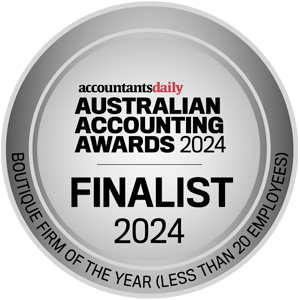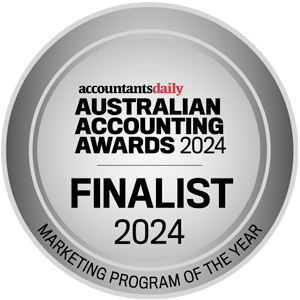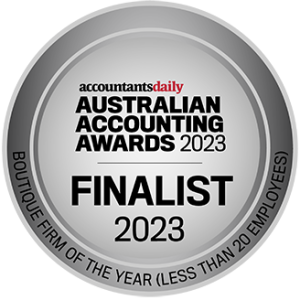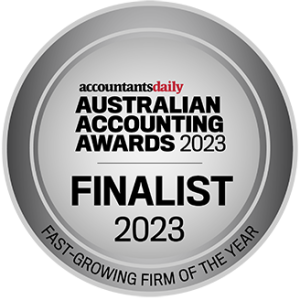
A guide for not-for-profits on reimbursements, allowances, and honorariums.
Volunteers are the lifeblood of many Australian not-for-profits (NFPs). They give their time, skills and energy without expecting a pay cheque, but that doesn’t mean they can’t be reimbursed or recognised in other ways.
Whether it’s a board member travelling for meetings, a speaker at a charity event, or a long-term volunteer who has spent money on printing and supplies, there are times when paying volunteers makes sense. But the remuneration of volunteers must be done transparently, fairly, and in compliance with the Australian Taxation Office (ATO) and Australian Charities and Not-for-profits Commission (ACNC) regulations.
This guide explains the three main categories of volunteer payments – reimbursements, allowances, and honorariums/gifts – and offers tips on governance, reporting, and avoiding reputational risk.
Reimbursements: repaying volunteers for out-of-pocket costs
Reimbursements are the most common method of volunteer payments. When it is agreed that a volunteer purchases something for your organisation, such as stationery, parking for a board meeting, or petrol to attend a relevant event, repaying that cost is usually appropriate and non-taxable.
Genuine reimbursements, which don’t exceed the amount spent, are not taxable income for the volunteer and don’t need to be reported.
Best Practice:
- Ask volunteers to submit invoices/receipts as part of your reimbursement approval process.
- Consider using solutions such as ApprovalMax, Weel or DEXT to manage digital receipt uploads and payment tracking.
- Have an agreed policy regarding acceptable volunteer reimbursements.
- Be consistent in offering the same reimbursements to volunteers in similar roles.
Allowances: Pre-agreed flat rate payments
Unlike reimbursements, allowances are fixed payments made to volunteers to cover anticipated costs. They don’t require receipts, and the volunteer can keep any unspent amount.
The ATO defines allowances as:
“A definite, predetermined amount to cover an estimated expense… The recipient is not required to repay any excess if they do not spend it all.”
Allowances are generally considered assessable income for the recipient. If your volunteers receive allowances regularly, or they rely on them, they may need to declare this on their tax return
Examples of allowances include:
- A weekend volunteer receives a $50 flat rate for food and transport.
- A board member is paid a sitting fee for attending scheduled meetings.
These are sometimes referred to by charities as ex gratia payments, especially when provided in goodwill rather than as compensation.
ATO clarification on income treatment from a volunteer’s perspective includes:
“Generally, receipts that are earned, expected, relied upon and have an element of periodicity, recurrence or regularity are treated as assessable income of a volunteer.”
While allowances may be easier administratively, they can expose volunteers to unexpected income tax implications.
Governance Tips:
- Develop a formal Volunteer Payments Policy outlining when allowances apply and how they are approved.
- Consider whether the public or donors might misunderstand the purpose of the payment and be ready to explain it.
Honorariums and Gifts: Saying Thank You the Right Way
Honorariums are discretionary payments made without obligation, often to recognise exceptional voluntary service or thank someone for a professional service offered without charge.
While these kinds of volunteer payments are a generous gesture, honorariums and gifts must be handled with care.
According to the ACNC:
“It generally expects that any gifts or honorariums a charity may offer are of a token nature… Excessive gifts or honorariums could indicate that the charity’s financial affairs are being irresponsibly managed.”
Examples:
- A $200 one-off payment to a speaker who presented at a conference.
- A commemorative watch for a retiring volunteer.
- A bottle of wine for a community member who donated their time to run a workshop.
If the services provided are professional (e.g. legal, accounting, training), the ATO may classify the honorarium as assessable income, particularly if the work resembles paid employment.
Additionally, in some circumstances, non-cash gifts may give rise to fringe benefits tax (FBT) implications for the NFP.
Volunteer Management Tips:
- Be aware of situations where the volunteer’s work resembles paid employment.
- Volunteers who receive an honorarium for professional services may also be eligible to claim deductions for related expenses, provided the income is declared.
Governance and Legal Considerations
When offering financial recognition to volunteers, NFPs must consider more than just tax treatment. Be aware of the following governance and legal issues when making decisions about volunteer payments.
- Conflict of Interest and Related Party Issues:
Payments to board members (or their relatives) may create a conflict of interest and fall under Governance Standard 5, which requires charities to act in the best interests of the organisation and manage conflicts transparently. - Fundraising Laws and Trust Restrictions:
In some states, fundraising laws restrict what board members (known as “Responsible People”) can be paid. If your charity is a trust, payments to trustees are only allowed if the trust deed specifically permits it. - Financial Reporting Obligations:
Under AASB 124, charities must disclose significant related party transactions, such as honorariums to board members, unless the payments are both immaterial and on arm’s length terms. Even small charities preparing special purpose reports are now required to disclose the nature and amount of related party transactions in their financial statements and Annual Information Statement. This shift aims to improve transparency and accountability across all tiers of the sector.
ACNC reporting: charity size and exemptions
The ACNC sets different reporting standards for medium and large organisations, depending on their size and any exemptions that apply; for example:
- Medium: Financial reporting required; payments should be included in reports.
- Large: Full financial reporting and remuneration disclosures required.
- Religious charities: May be exempt, but check your specific status on the ACNC website.
Where payments are made to board members or their close associates, the ACNC now requires all registered charities to disclose related party transactions in their Annual Information Statement (AIS). It also recommends having a clear policy in place to manage these relationships and ensure decisions are made in the best interests of the charity.
A best practice approach to volunteer remuneration:
- Develop a Volunteer Payments Policy that covers your approval process, relevant thresholds, and the handling of receipts.
- Maintain transparency with stakeholders and donors
- Manage expectations about the nature of the payment
- Seek professional advice for complex arrangements.
FAQs
Can a volunteer be reimbursed without paying tax?
Yes. If the reimbursement matches actual costs and isn’t more than the amount spent, it is not assessable income.
Is an allowance the same as a reimbursement?
No. A reimbursement repays actual expenses. An allowance is a pre-agreed flat payment and is generally taxable.
Are honorariums considered income?
They can be. If the honorarium is tied to a service with professional value or regularity, it may be assessable income for the volunteer.
Do all charities need to report volunteer payments?
Reporting depends on your charity size. Medium and large charities must report payments; small ones may not be required to report.
Our team works with a wide variety of NFPs, and we can provide professional advice about volunteer remuneration. Book a meeting today to learn more.






